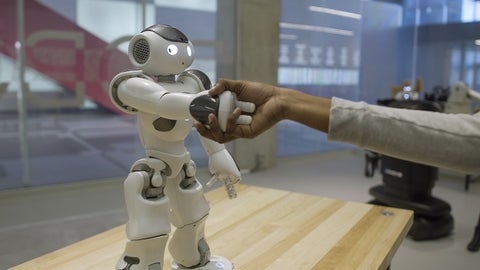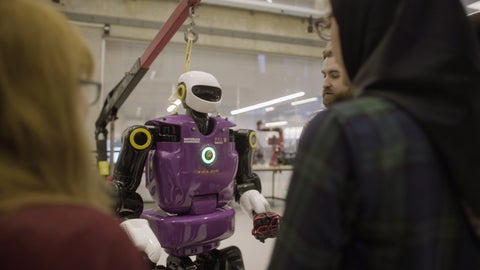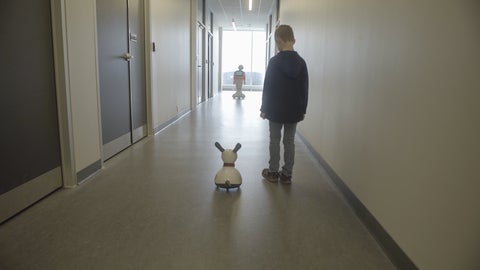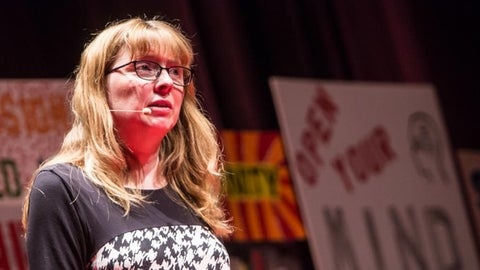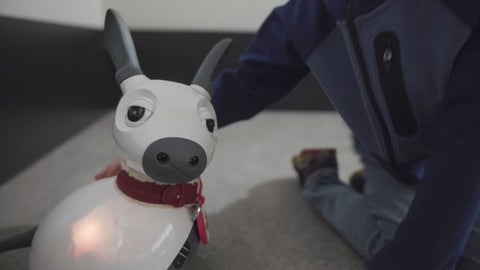Founded in August 2018 by professors Kerstin Dautenhahn and Chrystopher Nehaniv, the Social and Intelligent Robotics Research group carries out work situated in the fields of social robotics, human-robot interaction, cognitive and developmental robotics and Embodied Artificial Intelligence.
Here you can learn about the group’s journey to discover fundamental principles and mechanisms that can make robots more socially intelligent, as well as enabling them to interact with people in a trustworthy and efficient, but also "natural" and socially acceptable manner - as co-workers, assistants or companions. The goal of our research is to advance knowledge in social and intelligent robotics and to develop robots that can make a positive contribution to human society.

The SIRRL is an interdisciplinary research group. We believe that science and engineering can only advance with a diversity of thought, and inclusion of researchers from a variety of backgrounds and demographics. To make an impact, research should reflect the population who will be impacted by the outcomes of this research. At the SIRRL, we put equity, inclusion, and diversity at the heart of what we do.
We, the SIRRL team at the University of Waterloo, acknowledge that much of our work takes place on the traditional territory of the Neutral, Anishinaabeg and Haudenosaunee peoples. Our main campus is situated on the Haldimand Tract, the land granted to the Six Nations that includes six miles on each side of the Grand River.
News
Kerstin Dautenhahn named Canada Research Chair in Socially Intelligent Robotics (Tier 1)
We’re thrilled to share that Prof. Kerstin Dautenhahn has been appointed a Tier 1 NSERC Canada Research Chair in Socially Intelligent Robotics. The Canada Research Chairs (CRC) announcement recognized four Waterloo scholars with $3.95 M in total support.
Lab Research Receives Best Presentation Award at ICSR 2024
We are proud to announce that our research paper, "What Makes an Educational Robot Game Fun? Framework Analysis of Children’s Design Ideas," received the Best Presentation Award at the 16th International Conference on Social Robotics (ICSR 2024), held from October 23-26 in Odense, Denmark. The paper was also nominated for the best paper award. This year’s conference theme, "Empowering Humanity: The Role of Social and Collaborative Robotics in Shaping Our Future," highlighted innovative advancements in social robotics aimed at enhancing human interaction and societal integration.
Prof. Kerstin Dautenhahn's Role in Canada's Robotics Research Highlighted (Canada 150 Research Chairs)
Marking the 7th year since Prof. Dautenhahn joined Canada 150 Research Chairs, her work is highlighted in an interview.

